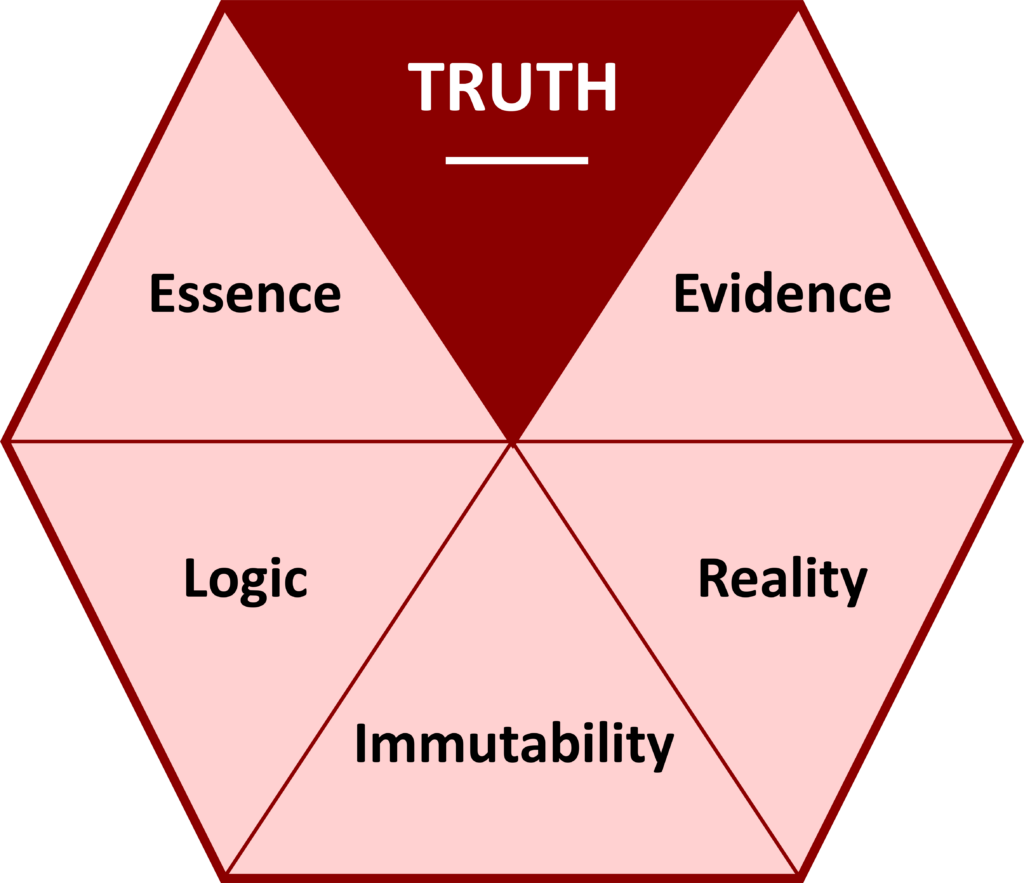Answers: What is real?
Why Experiencing Truth is Important to Resilience

Truth is commonly thought of as that which is in accordance with fact and reality. With this orientation, the first encounter with truth when facing adversity is in objective acknowledgement and accepting the reality of the adversity itself as well as the impact that it has on one’s life. People who can consider the evidence and honestly accept the truth of their circumstances are often able to deal with them effectively and to move forward more quickly. Beyond our immediate, individual perceptions of fact and reality, there are greater truths regarding the immutability of the physical and metaphysical worlds in which we live, with conditions that often lie beyond our ability to see, touch, or measure, and that are more clearly perceived in the spiritual dimension. With this more unbounded sense of Truth, through reason and applied logic, we begin to understand the essence of Truth and connect with a world that is “bigger than ourselves” – a helpful source for managing through adverse circumstances.
There is an objective ‘real world’ as well as a subjective ‘inner world’ and, if the two do not match, we live a lie. —Peter Kreeft
Without a Strong Appreciation of Truth …
Without a strong, positive commitment to Truth … you may live in denial of important aspects of adversities encountered and compromise the ability to take meaningful corrective steps. You may also lose perspective and real connection to healthy support systems that may be vital to perseverance and ultimately being able to move forward through adversity.
The real things haven’t changed. It is still best to be honest and truthful; to make the most of what we have; to be happy with simple pleasures; and have courage when things go wrong. —Laura Ingalls Wilder
Action Planning
If you want to develop your ability to seek and understand Truth further … take an honest look at yourself, your life circumstances, and also begin to seek answers to some of life’s bigger questions.
Possible Actions – Perceive & Ponder
- State clearly your understanding of your current circumstances.
- Consider what ‘truths’ you know and how you know them.
Possible Actions – Engage & Connect
- Listen to the perspective of trusted advisors about your particular circumstances and consider if they match your own understanding.
- Connect with people in similar life circumstances who may help you gain valuable in sight into your own situation.
Possible Actions – Plan & Pursue
- Meet with a confidant or professional advisor (counselor, pastor, spiritual director) who can help you better understand the reality and impact of your experiences.
- Find ways to engage in exploring and seeking to understand ‘greater truths’ about the world and your place in it.



